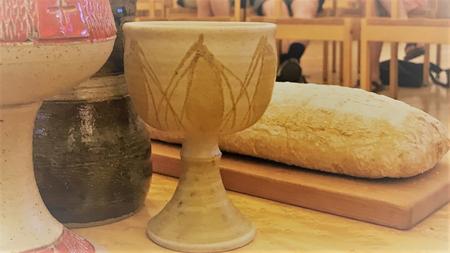The Upper Zoom: Worship and Bible Study Guide for Week 1
 Current students, faculty, and staff are participating in a five-week, synchronous, socially-distanced Bible study and worship series called The Upper Zoom ©2020. Each week we will post the worship outline and Bible study that the Andover Newton Seminary community participated in the *previous* week. This way, our extended Andover Newton family, partner churches, and friends can lead their own weekly socially-distanced service.
Current students, faculty, and staff are participating in a five-week, synchronous, socially-distanced Bible study and worship series called The Upper Zoom ©2020. Each week we will post the worship outline and Bible study that the Andover Newton Seminary community participated in the *previous* week. This way, our extended Andover Newton family, partner churches, and friends can lead their own weekly socially-distanced service.
The Upper Zoom: Week 1
Order of Worship by Sarah B. Drummond
Bible study curriculum by Gregory Mobley
John 9:1-12 (J. B. Phillips New Testament)
Prompts and Questions:
Note the oh-so-human impulse to assign blame for suffering.
How do we avoid scapegoating (“the Chinese virus”) under physical and psychological stress? Do you find yourself struggling with judgmentalism? Are there circumstances in which judgment is warranted?
Note the polarity of Jesus’ vivid, embodied presence with the man contrasted with, at the story’s end, the mystery of not-knowing where to find Jesus.
How do we manage the strobe-light pulses of divine presence and absence, of light and dark?
